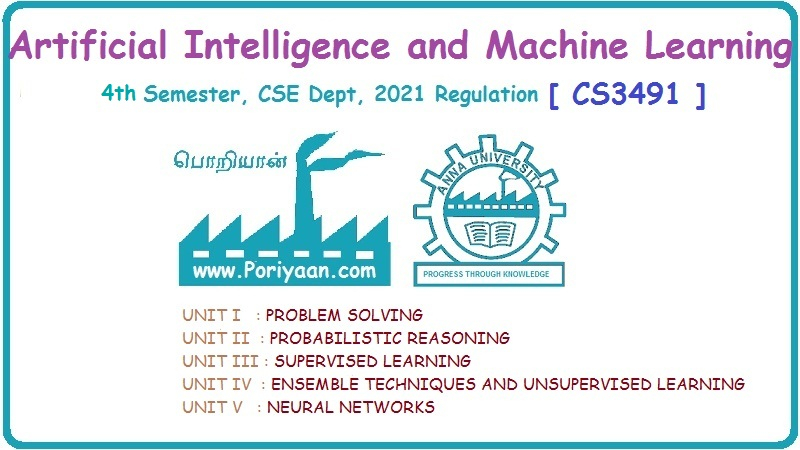Artificial Intelligence and Machine Learning: Unit I(e): Adversarial search
Types of Games
Adversarial search - Artificial Intelligence and Machine Learning
Players must choose their strategies simultaneously, neither knowing what the other player is going to do.
Types
of Games
1.
Based on chance
i) Deterministic
(not involving chance)
For
example -
Chess,
Checkers, Tic-tac-toe
ii)
Non-deterministic (can involve chance)
For
example
Backgammon,
Monopoly.
2.
Based on information
i)
Perfect information -
Here
all moves of all players are known to everyone.
For
example -
Chess,
Checker, Tic-tac-toe.
ii)
Imperfect information -
Here
all moves are not known to everyone.
For
example:
Bridge,
Pocker, Scrabble.
3.
General zero-sum games
Players
must choose their strategies simultaneously, neither knowing what the other
player is going to do.
For
example-
If
you play a single game of chess with someone, one person will lose and one
person will win. The win (+1) added to the loss (−.1) equals zero.
4.
Constant-sum game
Here
the algebraic sum of the outcomes are always constant, though not necessarily
zero.
It
is strategically equivalent to zero-sum games.
5.
Non-zero-sum game
Here
the algebraic sum of the outcomes are not constant. In these of the payoffs are
not the same for all outcomes.
They
are not always completely solvable but provide insights into important areas of
inter-dependent choice.
In
these games, one player's losses do not always equal another player's gains.
The
non-zero-sum games are of two types: -
i)
Negative sum games (Competitive) -
Here
nobody really wins, rather everybody loses.
Example
- A war or a strike.
ii)
Positive sum games (Co-operative) -
Here
all players have one goal that they contribute together.
Example
- An educational game, building blocks, or a science exhibit.
6.
N-person game
It
involves more than two players.
Analysis
of such games is more complex than zero-sum games.
Conflicts
of interest are less obvious.
Artificial Intelligence and Machine Learning: Unit I(e): Adversarial search : Tag: : Adversarial search - Artificial Intelligence and Machine Learning - Types of Games
Related Topics
Related Subjects
Artificial Intelligence and Machine Learning
CS3491 4th Semester CSE/ECE Dept | 2021 Regulation | 4th Semester CSE/ECE Dept 2021 Regulation
